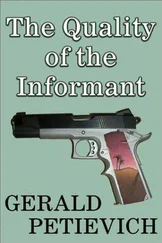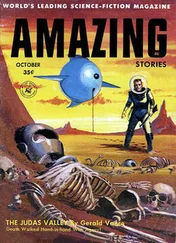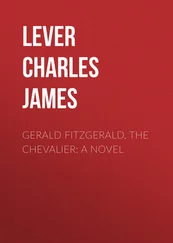A taxi was standing, wide-open and quivering.
‘77, Bishop’s Square, Belgravia,’ said Mr Wainewright.
‘Bishop’s Square, Victoria,’ said the taxi-driver.
‘Belgravia,’ said Mr Wainewright.
The doorman was waiting. He fumbled and found coins. ‘Here,’ he said. The doorman saluted and the taxi-door slammed. Everything jolted away. At Whitehall, Mr Wainewright realised that he had given the doorman four half-crowns instead of four pennies. He rapped at the window.
‘Well?’ said the driver.
‘Oh, never mind,’ said Mr Wainewright.
Let them all wait until tomorrow. They would know then to whom they had been talking.
But on that Sunday, for the first time in ten years, the editor of the Sunday Special cut out John Jacket’s article. Twenty minutes before midnight, formidable news came through from Middle Europe. Jacket’s page was needed for a statistical feature and a special map.
Mr Wainewright went over the columns, inch by inch, and found nothing. He telephoned the Sunday Special. A sad voice said: ‘Mr Jacket won’t be in until Tuesday – about eleven o’clock. Tell him what name, did you say? Daylight? Maybright? Wainewright. With an E, did you say, did you say? E. Wainewright? Oh, George. George E. Wainewright? Just George? George. Make your mind up. George Wainewright, I’ll give Mr Jacket the message. ’Bye.’
On Tuesday, Mr Wainewright arrived at the offices of the Sunday Special before half-past ten in the morning. Jacket arrived at a quarter to twelve. He saw that the little man looked ill.
‘How are you, George?’ he asked.
‘Mr Jacket,’ said Mr. Wainewright, ‘what’s happened?’
‘Happened? About what?’
‘I hate to disturb you——’
‘Not at all, George.’
‘We met, you remember?’
‘Certainly I remember. Hm?’
‘The piece you were going to put in the paper about … about … my views on the Tooth case. Did you …?’
‘I wrote it, George. But my page was cut last Sunday. On account of Germany. Sorry, but there it is. Feel like a drink?’
‘No, nothing to drink, thank you.’
‘Coffee?’
‘Perhaps a cup of coffee,’ said Mr Wainewright.
They went to a café not far away. Jacket was aware of Mr Wainewright’s wretchedness: it was twitching at the corners of the nondescript mouth and dragging down the lids of the colourless eyes. ‘What’s up?’ he asked, as if he did not know.
‘Nothing. I simply wondered … I wondered …’
‘About that story? Take it easy, George. What is there that I can do? Bigger things have happened. As for this Tooth murder case – if you can call it a case. Martha Tooth is certain to get off lightly. Especially with Concord defending. I must get back to the office.’
In Fleet Street Mr Wainewright asked him: ‘Is the trial likely to be reported?’
‘Sure,’ said Jacket.
‘I suppose I’ll be called, as witness?’
‘Of course.’
‘But I’m detaining you, J-Jack.’
‘Not at all, George. Good-bye.’
‘Good-bye, sir.’
Jacket hurried eastwards. Mr Wainewright walked deliberately in the direction of the Strand.
* * *
Sumner Concord was perhaps the greatest defender of criminals the world had ever known. He could combine the crafty ratiocination of a Birkett with the dialectical oratory of a Marshall Hall, and act like John Barrymore – whom he closely resembled. The louder he sobbed the closer he observed you. In cross-examination he was suave and murderous. Birkenhead himself was afraid of Sumner Concord. Yet Concord was an honest man. He would defend no one whom he believed to be guilty.
‘Tell me about it,’ he said, to Martha Tooth.
‘What do you want me to tell you?’ she asked.
‘You must tell me exactly what happened that evening at Number 77, Bishop’s Square. The truth, Mrs Tooth. I want to help you. How can I help you if you do not tell me the truth?’
She said: ‘There isn’t anything to tell.’
‘Now you are charged——’ began Sumner Concord.
‘Oh, what do I care? What do I care?’ cried Martha Tooth. ‘Charge me, hang me – leave me alone!’
Sumner Concord had strong tea brought in before he continued. ‘Tell me, Mrs Tooth. Why did you visit your husband that night?’
Martha Tooth said: ‘I wasn’t well. I couldn’t work. There were the children. I wanted Sid to do something about the children. I was his wife. He was my husband, after all…. I only wanted him to give me some money, just a little, till I could work again.’
‘Work again at what, Mrs Tooth?’
‘I’d been doing housework.’
‘And it had been some time since your husband had given you any money?’
‘Three years.’
‘You had been supporting yourself and your two children all that time?’
‘Yes.’
‘He had sent you nothing?’
‘Not a penny. I left Sid over three years ago.’
‘Why did you leave him, Mrs Tooth?’
‘He used to beat me. I couldn’t stand him beating me in front of the children. Then – it was when we had two rooms in Abelard Street near the British Museum – he brought a woman in.’
‘Are there, Mrs Tooth, by any chance, any witnesses who could testify to that?’
‘Mrs Ligo had the house. Then there was Miss Brundidge; she lived downstairs. I ran away with the children and went to my aunt’s place. She still lives there: Mrs Lupton, 143, Novello Road, Turners Green. Her friend, Mrs Yule, she lives there too. They both know. We stayed with them once. Sid used to knock me about. The police had to be called in twice. He wanted to kill me when he’d been drinking.’
‘… In twice ,’ wrote Sumner Concord. ‘Novello Road. Novello Street Police Station, um? Take your time. Have some more tea. A cigarette. You don’t smoke? Wise of you, wise. He was a violent and dangerous man, this husband of yours, then?’
‘Yes.’
‘He threatened, for instance, to kill you, no doubt?’
‘No,’ said Martha Tooth, ‘he never threatened. He just hit.’
‘And on this last occasion. You called to see him. Hm?’
‘Yes, that’s right.’
‘You hadn’t seen him for some time?’
‘About three years.’
‘How did you find out his address?’
‘From his firm, Poise Weighing Machines.’
‘You hadn’t tried to find out his address before, eh?’
‘All I cared about was that Sid shouldn’t find out my address.’
‘But you were at the end of your tether, hm?’
‘I was supposed to be having an operation. I’ve still got to have an operation. And I thought Sid might let me have something …’
‘There-there, now-now! Calm. Tears won’t help, Mrs Tooth. We must be calm. You saw Sid. Yes?’
‘Yes, sir. But … he’d been drinking, I think.’
‘Tell me again exactly what happened.’
‘I called. A lady let me in. I went up, and Sid was there. He said: “What, you?” I said: “Yes, me.” Then he said – he said——’
‘Take your time, Mrs Tooth.’
‘He said: “What a sight you look.”’
‘And then?’
‘I suppose I started crying.’
‘And he?’
‘He told me to shut up. And so I did. I think I did, sir. I tried to. I asked him to let me have some money. He said that I’d had as much money as I was ever going to get out of him – as if I’d ever had anything out of him!’ cried Mrs Tooth, between deep, shuddering sobs.
‘There, there, my dear Mrs Tooth. You must drink your tea and be calm. Everything depends on your being calm. Now.’
‘I said I’d go to his firm. I told him I was ill. I told him I’d go to his firm in the City. Then he hit me, sir.’
Читать дальше











